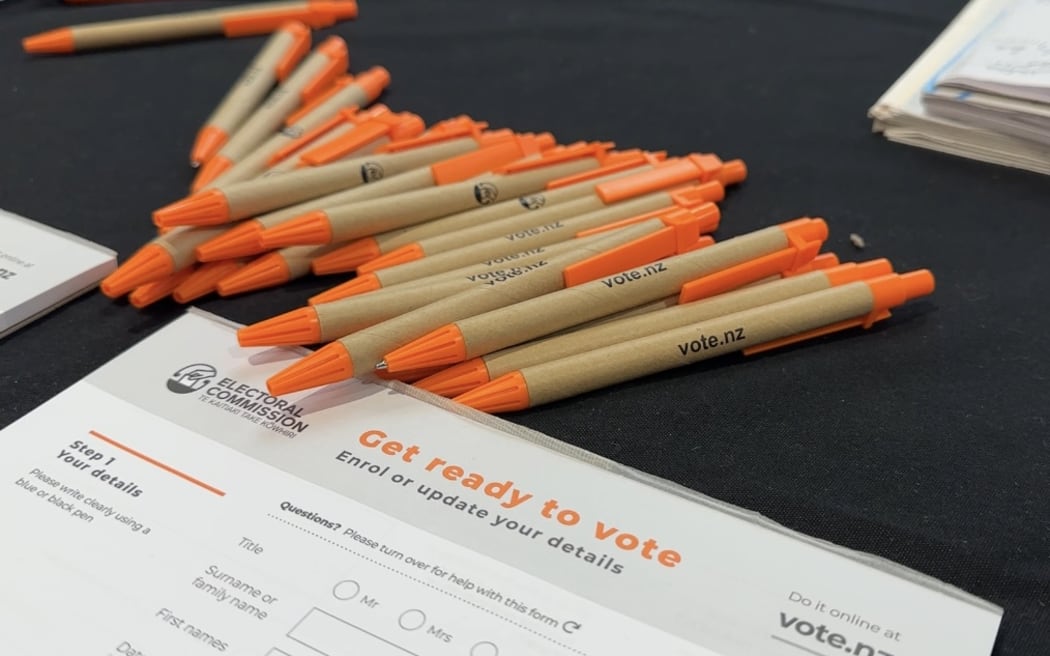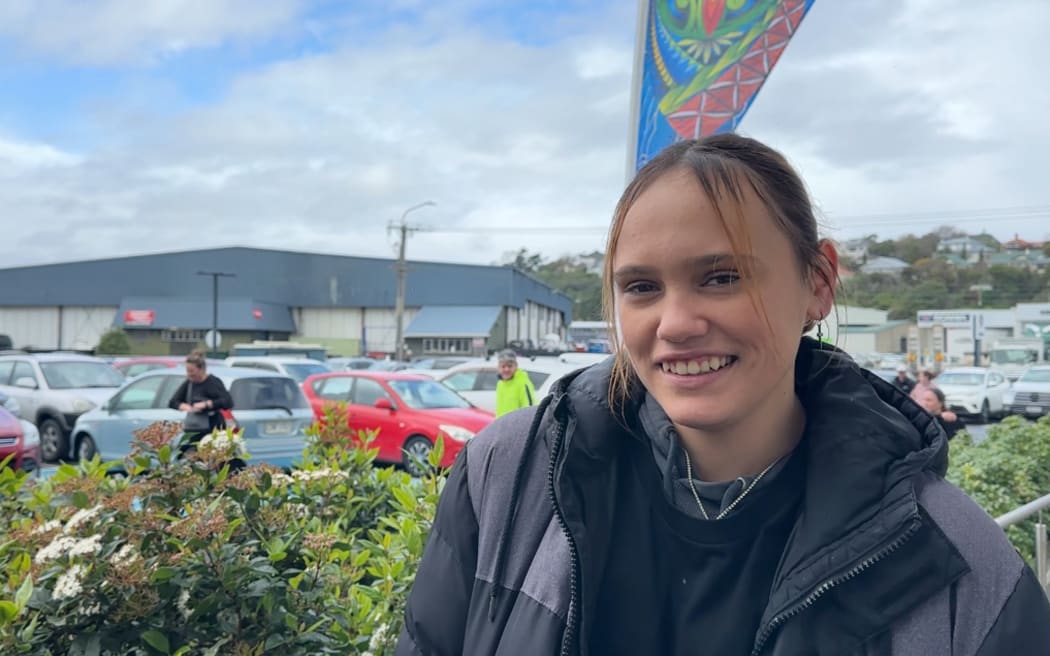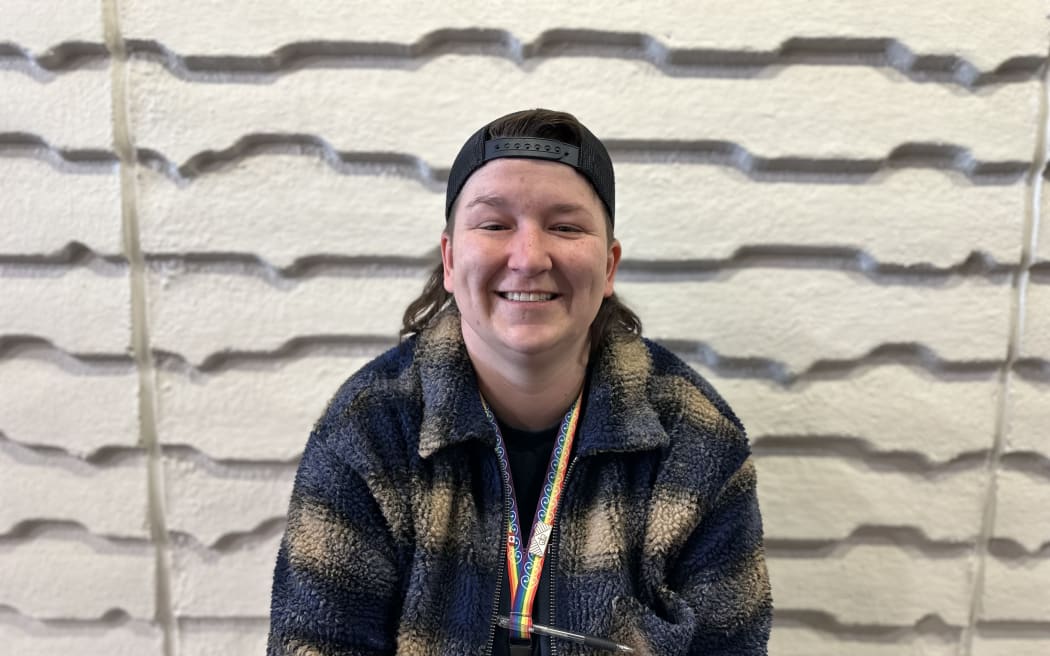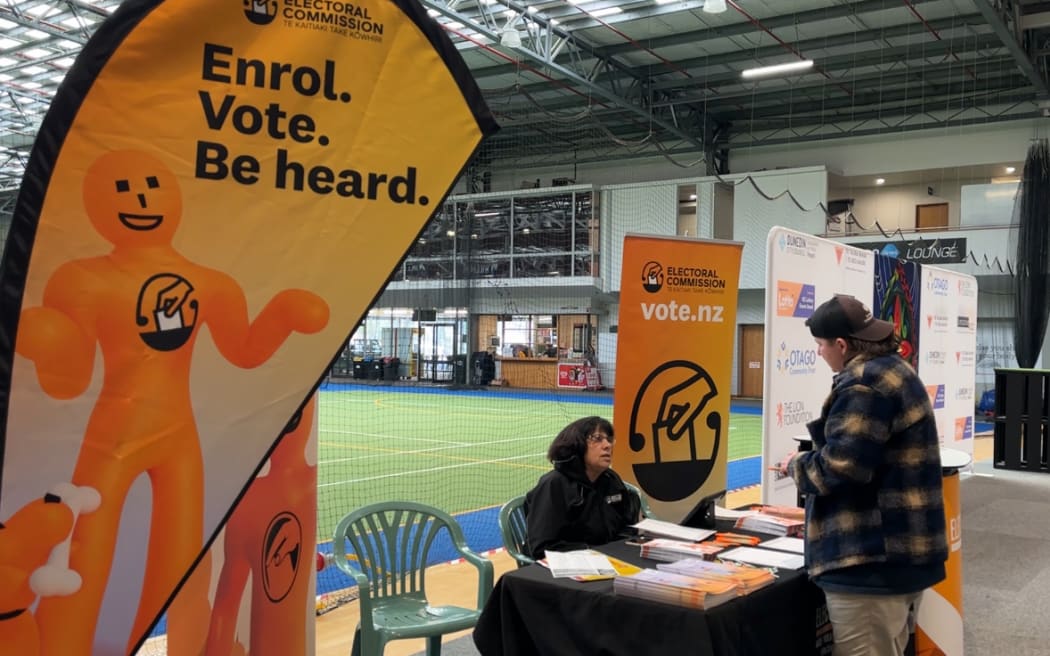
As of 2022 there were 80,000 Pacific students within New Zealand's school system. Photo: RNZ Pacific / Eleisha Foon
Some Pacific and Māori school leavers are concerned they're being failed by a "lack of civic education" in New Zealand.
There are a number of students and youth workers who shared that they feel ill-equipped ahead of the election - many are first time voters.
Dunedin based student Akiana Gilchrist, 18, never knew she was eligible to vote for the first time this year, until approached by RNZ Pacific during Otago Polyfest.
"Now that I know I can vote, I will. I want to use my voice and have an impact. I learnt a bit about voting when I was younger, but as I got older that stopped and there's just been a focus on careers in highschool not on voting."
As of 2022, there were 80,000 Pacific students within New Zealand's school system.

Dunedin based student, Akiana Gilchrist Photo: RNZ Pacific / Eleisha Foon
But that number may vary, with dozens of Pasifika students having to leave school prematurely. Many have entered the workforce to financially support their families due to Covid-19 impacts and rising cost of living.
Dunedin youth worker at Te Hou Ora Whānau Services, Sid Ford believes 18- to 24-year-olds were the most under-served and neglected age group within Aotearoa.
She said they "deserve more support" before entering the workforce and voting for the first time.
"I think we have to address the education around civics and the lack there of in the schooling system. I certainly can't remember it in my time in school."
RNZ Pacific put these concerns to New Zealand's Electoral Commission, the body responsible for running the upcoming elections.

Sid Ford believes 18-24 year olds were the most under-served and neglected age group within Aotearoa. Photo: RNZ Pacific / Eleisha Foon
But, the Commission's deputy chief executive Anusha Guler said it civics education was "not their responsibility".
Ultimately it is up to "schools, educators, boards and Ministry of Education who design the curriculum" to make changes, she said.
"We provide information during the general election, engage with schools and we're in touch with Pacific community leaders," she said.
But Tongan Society South Canterbury general manager Sina Latu said no-one from her community in Timaru had been contacted by the Electoral Commission.
"They haven't approached our Tongan society or our church leaders," Latu said.
"It really shows how we are not heard and it's important if they reach out to the big cities, they need to reach everywhere. We are down South where there is a growing Pacific community."
The Electoral Commission provides resources for schools to run a mock election for students.
"It's a great way for students of all ethnicities to learn about our electoral system," Guler said.
However, only 30 percent of schools across New Zealand had signed up to take part.

There's a number of students and youth workers who shared that they feel ill-equipped ahead of the election - many are first time voters. Photo: RNZ Pacific / Eleisha Foon
The Ministry of Education's Hautū (leader) Curriculum Centre Ellen MacGregor-Reid, in a statement, said "schools are teaching a curriculum that best meets the needs of their learners and whānau schools have the flexibility to design their own local curriculum".
Due to the set up of New Zealand's national curriculum, MacGregor-Reid said the responsibility of civic education ultimately fell back on schools.
But Ford said, "teachers have enough responsibility as is and that it shouldn't be up to them to teach civic education".
She suggested youth advisors and educators who specialise in civics be employed to takeover classrooms in the lead-up to elections.
Youth advisors and student-lead initiatives would "take the pressure off teachers, because they do enough," she said.
Generation Vote - a student-lead non profit based in Otago, who deliver non-partisan civics education workshops, is a prime example.
With over 75 volunteers, they have managed to teach 550 students since it was first founded in 2018.
"Our rangatahi are the ones that are going to be facing the problems of today that are discussed in politics," Ford said.
"Kids who have fallen through the education system, or been let down by it, are the least involved when they need to be included in the conversation."
Looking ahead, Ford called for targeted and compulsory civics education in schools.
"This has to improve considering the voting age may be lowered from 18- to 16-years-old.
"You've got 16-year-olds that I'm working with who aren't entitled the right to vote, but are taxed like they are given the right to vote."
The New Zealand Election is less than a month away and people are encouraged to enrol ahead of voting day on 14 October.
Enrol to vote here
Learn about how the electoral system workshere
Not sure who to vote for - Take a quiz here
Student-lead non-profit teaching Civic Education in Schools here
Tools for school leavers and first time voters here and here


